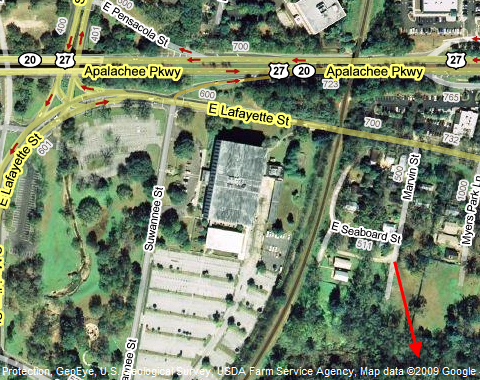I didn’t do resolutions this year like I did last year, but I do have a few professional goals I would like to accomplish this year.
Earn my GISP – I am only 3 points shy of being able to submit my application. I need to expand upon my professional contributions section. I am currently slated to lead a workshop on “Using GIS in Microstation” in June. That will help, and, by then another 6 months of my ASPRS and my CaGIS memberships will have passed by giving me a few more points. So hopefully, come the end of July, I’ll be able to submit my application!
Implement a solid GIS training program within FDOT – So, this goal might be overly ambitious for just 2010, but I have a vision where FDOT provides their own GIS training internally, instead of forking over $1000–1500/person for ESRI Certified training. Nothing against ESRI, I think they do a fantastic job, but when we aren’t allowed to travel, and have little budget for training even without travel, our options are limited. I’m currently working on an “Introduction to GIS” CBT module now. Hopefully, this will be completed by April 30th. Now, not all GIS training can (or should) be done via CBT, but at least this will put us a step in the right direction. It would be great if we could get some staff in each district trained to provide technical GIS training. The use is growing within the department, and its essential that people understand it, and know what they can do with it.
Get promoted – don’t most people have this on their radar? In reality though, I’ve been told time & time again, that in order to succeed in FDOT is to get supervisory experience. Easier said than done. There is however, a supervisory position open in our office. I’ve been working very hard towards preparing for the application and interview process for this position. I have been sitting down with the Director of Design to gain insight on how to interview at “the next level” as well as learning the difference between general office communication, and executive office communication. She has also helped me learn to market myself and communicate with confidence. In fact, I can’t wait to interview for this position. Most people get nervous at job interviews. Not me. Ok, well maybe I get a little bit nervous, after all, my professional future could be on the line, but generally, I am pretty comfortable when it comes to communicating with others. Interviewers are just people, and they’re there to get to know you. Most of the time its about who you are more than what you know anyway. The reason people interview you is not to find out your skills, they can determine that from your resume, but to find out who you are.
That said, I think 2010 is going to be an exciting year for me professionally. I feel like I’m finally going somewhere in my career. And I think the timing is great.

